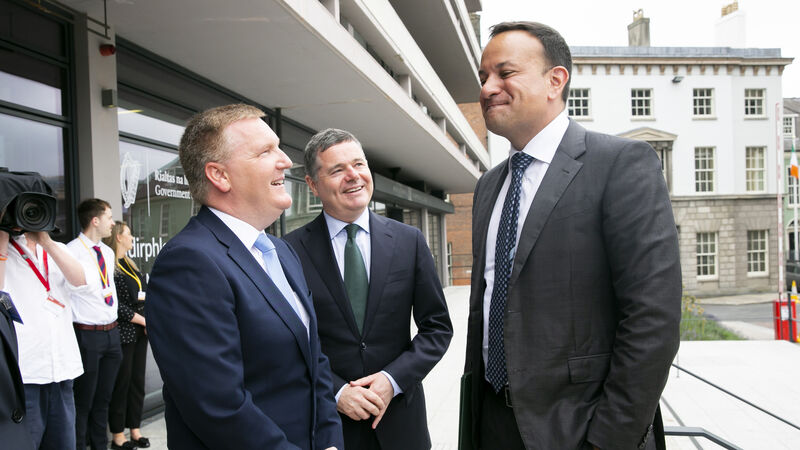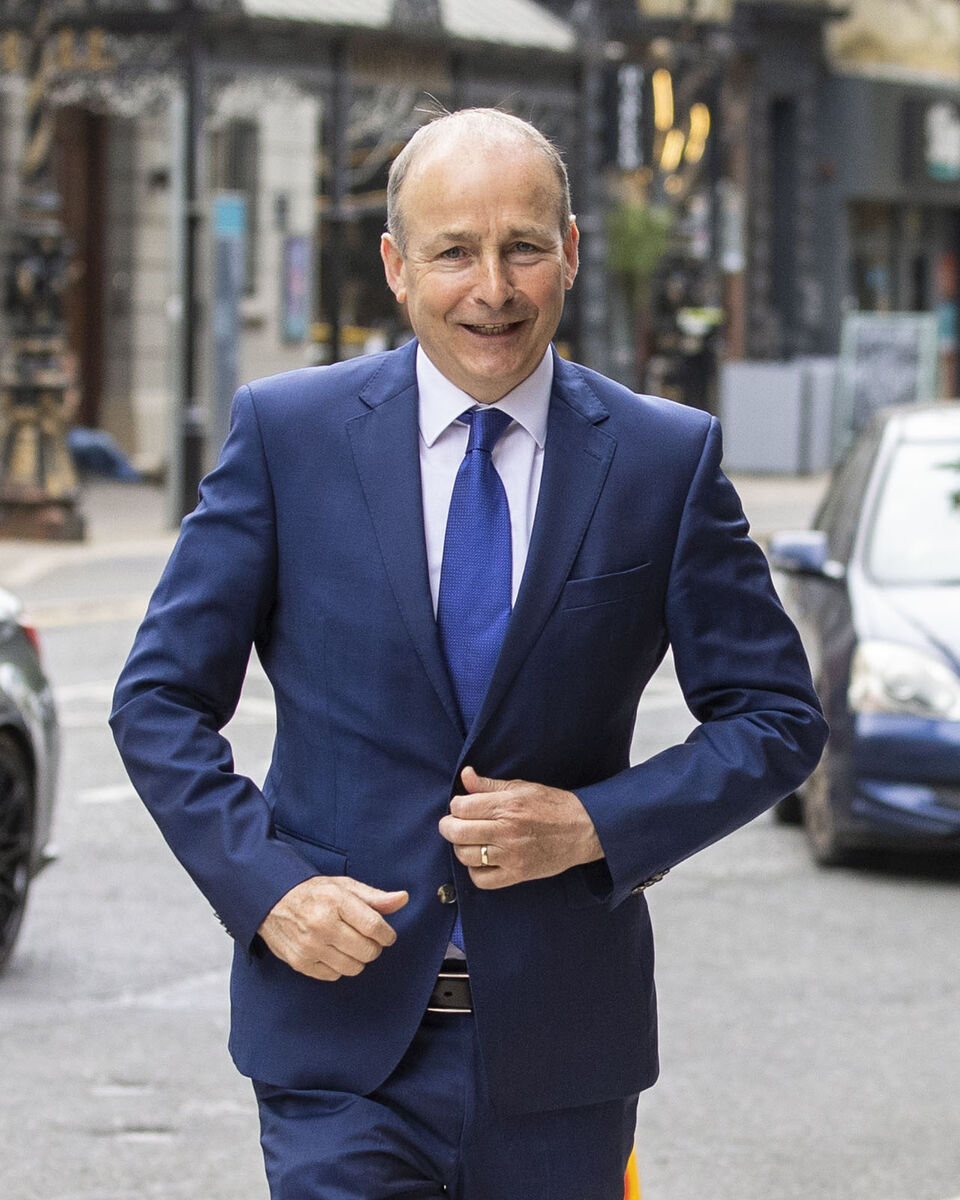Budget holiday - Ministers packing carefully for big day in October

While Taoiseach Leo Varadkar's words to the media assured us that he and his Finance and Public Expenditure ministers were on the same page, his speech railed against caution, against pessimism. Photo: Gareth Chaney/ Collins Photos
With the sun splitting the stones, there was a sense in Leinster House this week that summer had already arrived.
A senior member of a coalition party said it was as if politics had been "anaesthetised" and pointed to the early speculation on the shape of the Budget which had dominated the early going of this week.
In truth, the National Economic Dialogue (NED) is usually the accepted start of Budget speculation, a bit like how it's okay to put your Christmas tree up on the day of The Toy Show. The process in media circles will ramp up around the Summer Economic Statement next month, cool off for August and then explode back in the first week of September as definitive ideas start being bandied around.
This week's NED had an impressive number of ministers speaking to the media—the leads from Finance, Public Expenditure, Higher Education, Enterprise and Transport all spoke—along with the Taoiseach and Tánaiste. As is usually the case, it was the Taoiseach's intervention which stood out.
While his words to the media assured us that he and his Finance and Public Expenditure ministers were on the same page, his speech railed against caution, against pessimism.
"If the Government takes an overly cautious approach in dealing with the cost-of-living crisis and the climate crisis, it is making a conscious decision to reduce living standards and to do less," he said. "And that’s not something we should stand over given our fiscal position."
However, given the huge scale of the country's expected surplus this year, Mr Varadkar also moved to temper expectations. The country cannot, he said, expand spending based on windfall corporation taxes.
“Having said that, we have never, nor will we, use temporary revenues to fund permanent or occurring day-to-day spending. We have to be careful not to do that.”
Mr Varadkar's words were called "classic distraction tactics” and “unhelpful” by members of his own government, as the fight for Budget priorities comes a little closer.
His words came just after Finance Minister Michael McGrath said the forthcoming budget will be “prudent” and underlined his belief that the Budget's guiding light will be the Programme for Government.
"We have a Programme for Government commitment in relation to the indexation of credits and the (tax) band and Mr Donohoe was in a position to honour that in the last number of budgets. I expect given the strong position in our finances, that is a commitment that we will again be able to honour in the forthcoming budget."
In his first Budget as Finance Minister, Mr McGrath knows he will be under the spotlight, but has previously said he won't be bullied into tailoring the Budget to Fine Gael's tastes. Mr McGrath was speaking after a trio of Fine Gael junior ministers—Jennifer Carroll McNeill, Martin Heydon and Peter Burke—wrote an op-ed for the Irish Independent last month arguing that the budget should include a €1,000 tax cut for workers, an idea that was slammed as "nuts" by senior Fianna Fáil figures.
Mr McGrath said he did not feel as though the piece, along with Taoiseach Leo Varadkar's announcement in the Dáil that the State pension will increase in the Budget, was an attempt to back him into a corner on the budget or that he would be bullied into any concessions.

“Certainly not,” he said. “Anybody who knows me well enough knows that I can be as tough as anybody else when it comes to negotiations. I will always be conciliatory and polite, but I can be as firm as I need to be and I will be."
That article had sparked a proxy war within the coalition, with Green Party leader Eamon Ryan and Tànaiste Michéal Martin each speaking out about it. However, both of those men have not been shy about putting forwards their preferences for the Budget, either.
Mr Martin told the Irish Times in Jersey on Friday that he wants to see Ireland's expected €65 billion surplus to be used to create a "shock-proof" fund for future infrastructure projects and Mr Ryan said that he was looking for a major expansion of the size of the State's workforce. It is understood that he believes the number needs to increase by between 20,000 and 30,000 people in the coming years.
While Mr McGrath points to the agreed Programme for Government as a guiding document, the buoyancy of the national funds has focused minds within the Government on not just what has been agreed, but on what could be achieved. And that will lead to plenty more divergences before we reach think-in season in September and October's big day.





